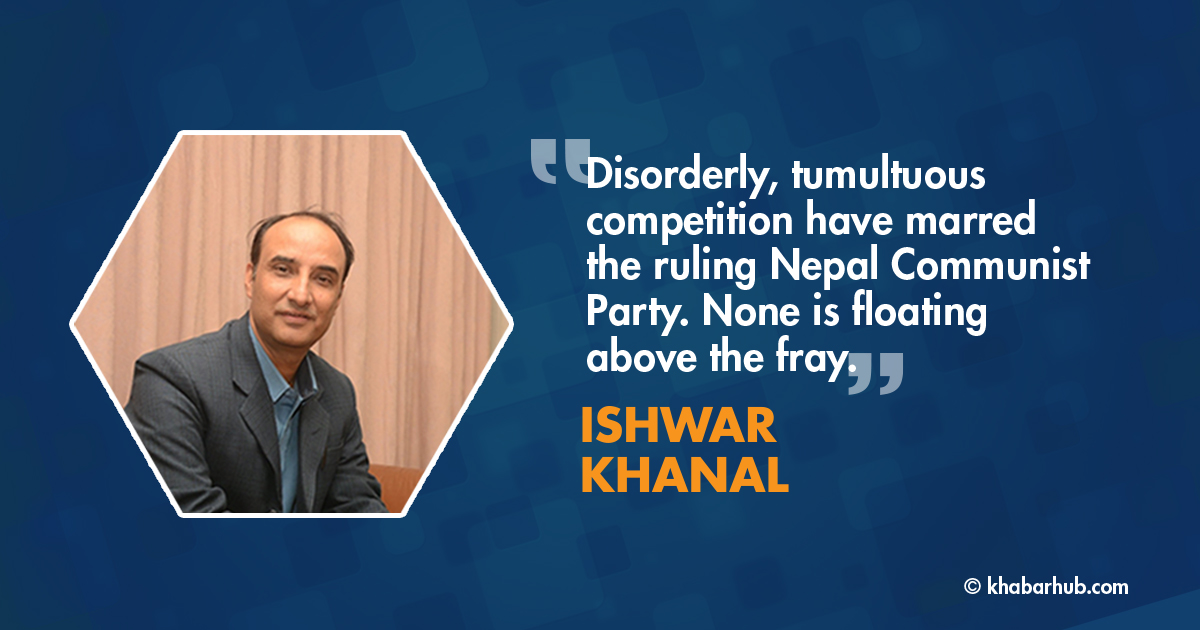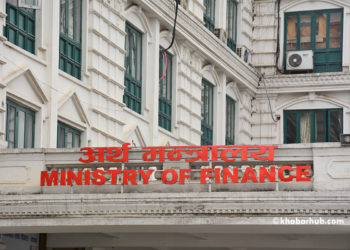Intra-party row of all shapes and natures have been the part and parcel of Nepal’s democratic journey.
The fact cannot be denied that intra-party conflicts are deep-rooted in Nepal’s political practice paving way for the political actors for easy access to public resources and accumulation of wealth.
If the current trend is to be followed, it would, perhaps, not be injudicious to note that politics in Nepal has been synonymous with acquiring wealth and property – legally or illegally.
Therefore, the jostle or the fracas for power has been quite intense – the latest being the high-voltage drama between Nepal’s Prime Minister KP Oli and Chairman of Nepal Communist Party Pushpa Kamal Dahal.
In fact, history has proved it right that intra-party row emanates in different forms – the latest being the ongoing dispute within the NCP further encumbering the government’s performance and smudging its image.
Conflicts in a party are not unusual but they need to be managed through politics of consensus and discipline again by keeping people and the country in the center since there have been instances attempting to derail the democratic process time and again.
What should not be forgotten is that the communist party won a landslide victory in the first general election held in 2017 after the promulgation of the new constitution in 2015. Therefore, it should at least be accountable to the people who voted for the party.
However, the NCP seems to be fractious and disorganized – the tug-of-war between Oli and Dahal proves it.
In addition, corruption is prevalent despite tall claims of anti-corruption efforts. Reason: Lack of accountable leaders and ministers.
Despite all these, the part, if not the crux of the problem is that people, mainly cadres, trust their leaders — most of them who remain out of contact after getting elected.
In Nepal, there have been leaders’ tendency of listening to members of their coterie while the common voters are abandoned.
Nepal’s political parties can undoubtedly serve people’s interests if they endeavored to become institutionalized rather than limiting their promises to speeches.
This can help contribute to the stability of the government and the system. By saying so, political parties must have an internal procedure and an institutionalized system that would help resolve their internal conflicts.
Internal conflict in a party means a clash of interests among its leaders, particularly those brawling for dominance, decision-making process and resources in the party to their advantage.
Given Nepal’s political parties’ convoluted journey towards establishing a republic (commonly called ‘Loktantra’), people had expected that these parties had realized their mistakes and weaknesses of the past.
Nepal’s political parties have succeeded in dealing with conflicts. The NCP, which was on verge of a split succeeded in holding its Secretariat meeting this week though the souring relationship between the two factions still persists.
However, the landscape of the parties’ sensing remained the same as the intra-party wrangling continued to control the louds and softs in party politics as almost all political parties in Nepal, including the Nepali Congress, have been plagued with the internal row.
Such intra-party row will have a wide-ranging implication for the country’s stability, particularly at a time when Nepal is in the path of institutionalizing “loktantra”.
Therefore, political parties should perform and fulfill their responsibilities keeping people, not money, in the center.
Conflicts in a party are not unusual but they need to be managed through politics of consensus and discipline again by keeping people and the country in the center since there have been instances attempting to derail the democratic process time and again.
What also needs to be noted with emphasis is that Nepal’s political parties have succeeded in dealing with conflicts.
Even the ruling NCP, which was on verge of a split succeeded in holding its Secretariat meeting this week though the souring relationship between the two factions still persists.
This becomes evident when PM Oli challenged another Chairman Dahal to substantiate his allegation saying factionalism will only ruin the party and that he would disprove all allegations against him.
It is, therefore, high time the political parties, which claim themselves democratic in nature, re-examined and their internal structures and processes to manage intra-party row and work towards further strengthening and institutionalizing democracy, rule of law and good governance in the country to ensure a win-win situation which in the long term would instill a culture of trust.









Comment